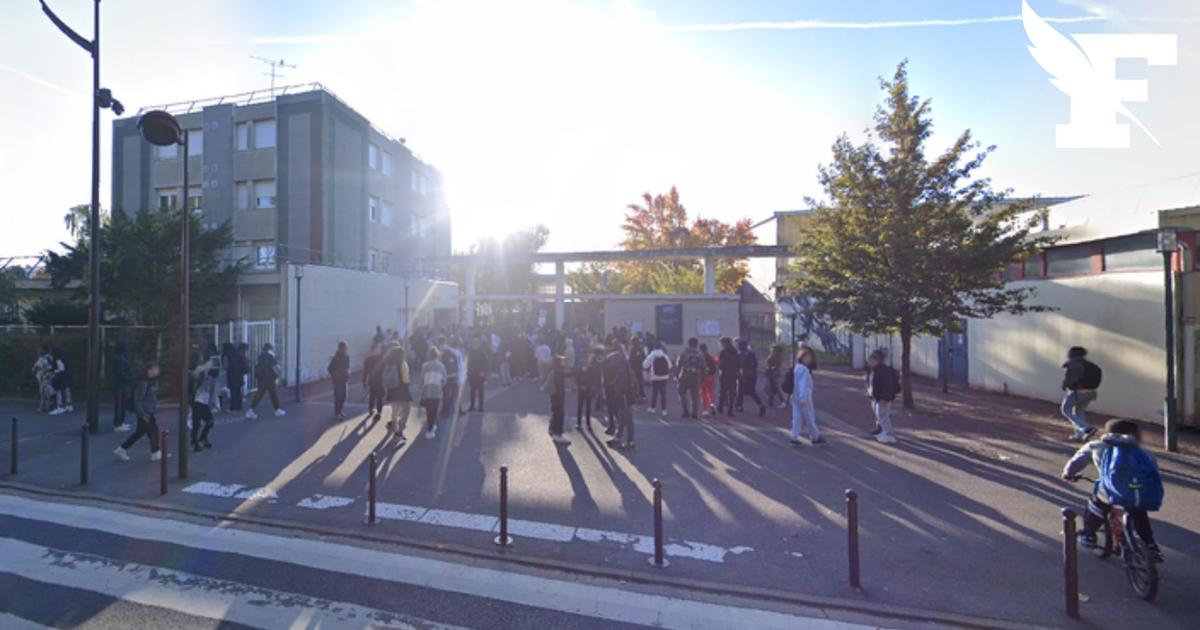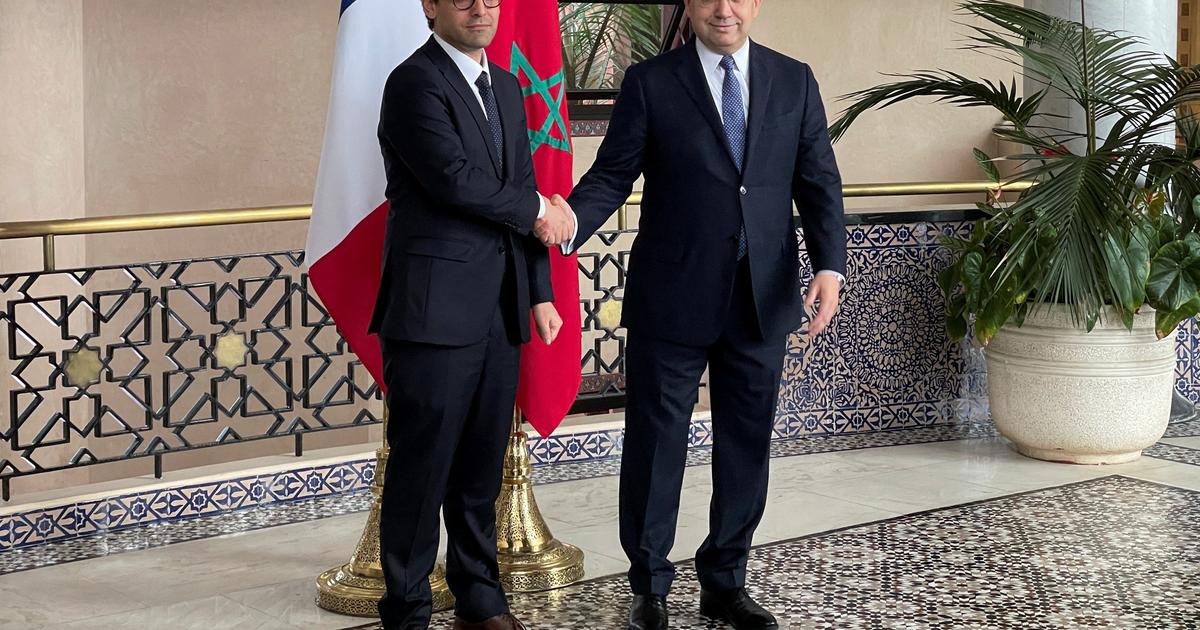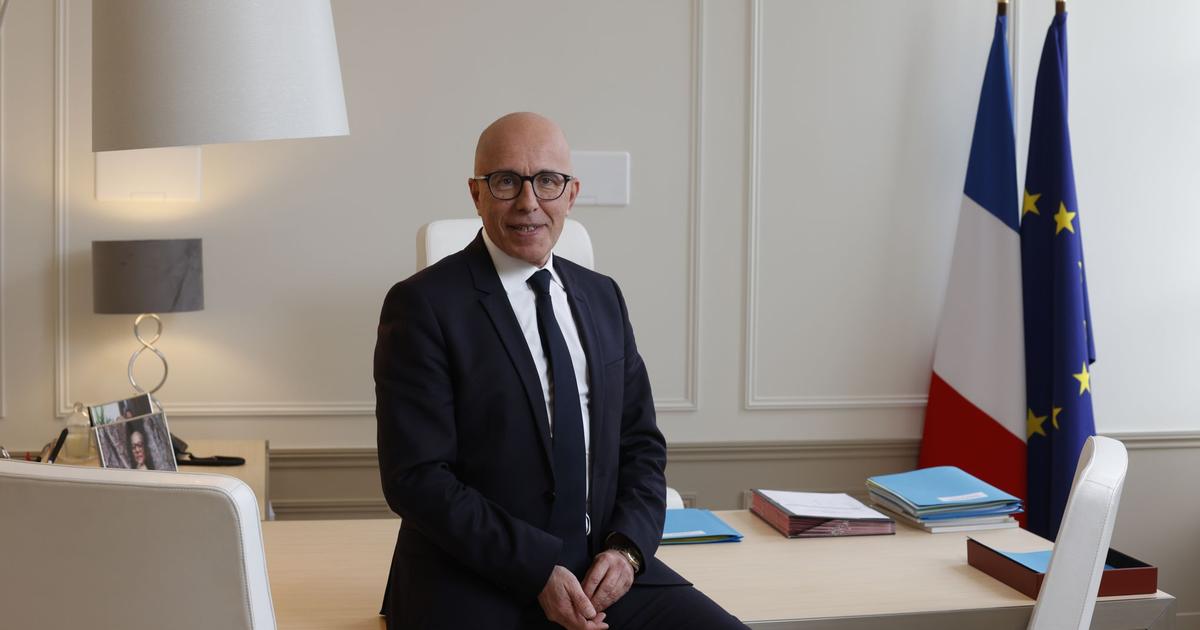Moroccan soldiers distribute butane bottles among the inhabitants of the Wakala neighborhood, last Monday in the city of Dakhla, in Western Sahara.Francisco Peregil
Several trucks of the Moroccan Army distributed butane bottles this Monday in the Wakala neighborhood, in Dakhla, the city of Western Sahara that was called Villa Cisneros until 1976, when it ceased to belong to Spain.
On Tuesday, Moroccan soldiers gave away oil.
Another day it will be the turn of meat, sugar, flour ... It is not a question of any natural catastrophe that requires the intervention of the Armed Forces, but of a silent demographic battle that has been waged since the ceasefire was signed in 1991 between the Polisario Front and Morocco.
A ceasefire that the Sahrawi organization has declared broken since last day 14 after an exchange of fire in the Guerguerat strip, 400 kilometers from Dakhla.
In 1997, Rabat seemed willing to accept a self-determination referendum for Western Sahara to be held in 1998. And it wanted to attract families living outside the Sahara to vote in favor of Rabat's interests.
They were offered a house in Wakala and daily maintenance based on the number of children.
Now Morocco controls and administers 80% of Western Sahara, but it is not known how much of the population that resides there is indigenous, and there is no agreement on who is from the place and who is not.
However, all the sources consulted, both Moroccan officials and Sahrawi activists, agree that the proportion of Sahrawis in Western Sahara is increasingly small.
The Moroccan state alleged at the time that the Wakala population had Sahrawi ancestry, even if they lived in central or northern Morocco.
But for the Polisario Front they were and are simple settlers who have an Army that distributes food and butane where, for more than 20 years, entire neighborhoods full of Moroccans have been built who enjoy state subsidies: guaranteed housing, whether owned. or for rent, and a minimum payment equivalent to about 200 euros if work is not available.
“They are paid for doing nothing,” claims 55-year-old Sahrawi activist Mohamed Fadel.
“And now the people of Wakala already have children who get married and also enjoy the daily food.
The settlers of Wakala are the most radical in the city.
There are other neighborhoods of Moroccans, of fishermen who earn their living by working hard and you can live with them perfectly.
But those of Wakala have believed all the propaganda of the Moroccan state.
Their fanaticism is reminiscent of that of the Israeli settlers ”.
A position from Wilaya, equivalent to the Government delegation, the highest authority in the region, who speaks on condition of anonymity, defends the people of Wakala against the Saharawis: “The indigenous population criticizes the delivery of food.
But many of the natives receive unemployment pay equivalent to about 200 euros.
Wakala's food is also equivalent to about 200 euros, ”says the leader.
“That payment is subsistence not only paid by the Sahrawis, but also by many Moroccans.
And it actually works as a blackmail weapon.
They take it away from those who protest, ”says Fadel.
The first residents outside the Sahara arrived attracted by the subsidies and by the work that the fishing industry provided.
10 years ago to all this was added the emergence of tourism around the sport of
kitesurfing
.
And meanwhile, the city was growing.
Today there are 39 active hotels and 100 under construction, according to Boudija Mohamed Salem, regional director of Tourism.
And, in addition, the greenhouse cultivation of cherry tomatoes, melons and peppers is being developed.
The regional director of investments, Mounir Houari, assures that the GDP of the region has almost doubled in the last 10 years.
And that the GDP per inhabitant is more than twice that of Morocco.
But not everyone sees this boom in the same way.
The aforementioned position of the Government delegation states: “The indigenous people only want management positions.
They think they are princes.
They are ashamed to be seen working as waiters or receptionists.
They don't mind doing it in the Canary Islands or in France, but they don't want to be seen here.
In the end, those positions are filled with people who come from outside the Sahara ”.
A European businessman who also requests to hide his name points out: “Most of the entrepreneurs do not want to work with Sahrawis.
They think that they don't work much and in case of layoffs they create many problems for you ”.
"All that we do not want to work is a lie," says Brahim distant, a 30-year-old Sahrawi who has camped three months ago with another Sahrawi, Ahmed Bakari, 50, at the headquarters of the fishing company that fired them.
The oldest, like some Sahrawis of his generation, speaks in Spanish.
The youngest says: “In a ship of 16 sailors they only allow two Sahrawis to enter.
Because they don't want us to see reality, they don't want us to witness the illegal things they do;
sometimes they fish 4,000 tons instead of 2,000 and have to throw half into the sea ”.
Balance in favor of Rabat
In 2007 Morocco presented its autonomy proposal for Western Sahara and since then it has refused to negotiate the option of the referendum.
Western Sahara gradually disappeared from the international media agenda and there was no talk of a possible electoral roll.
But the demographic battle continued its silent course, being fought day by day in each neighborhood, always leaning in favor of Rabat.
In 1997, the then UN mediator, James Baker, estimated that the number of voters before the referendum that he planned to organize in 1998 would be "around 80,000".
Today, the official Moroccan figures published in 2019 indicate that 150,169 inhabitants live in Dakhla and 252,653 in El Aaiún, (capital of Western Sahara).
To them we must add other cities of the Sahara, such as Smara (70,569) or Bujdour (51,689).
Meanwhile, around 173,600 Sahrawi refugees live in the vicinity of the Algerian city of Tindouf.
From El Aaiún, located 600 kilometers north of Dakhla, the Sahrawi journalist and activist Ahmed Tanji, 32, also maintains that the Sahrawi population is increasingly a minority in the region.
“I would not dare to offer a percentage.
But it is clear that there are more and more Moroccan settlers.
The Moroccan labor agency, Anapec, makes announcements to promote that people settle in the Sahara ”.
Tanji also rejects the idea that Sahrawis don't like to work.
“What happens is that the monopoly of the main companies is held by the Moroccans.
That is why it is very easy to boycott us.
They will never give me a job at the phosphate company.
And to that marginalization must be added harassment.
My partner and I had planned to get married this November 21 and celebrate it in our homes.
And we couldn't do it that day because they literally took over the neighborhood.
They put a van at my partner's door ”.
Algeria called for calm
Algeria, the greatest ally, benefactor and protector of the Polisario Front, has appealed for prudence in its only official statement regarding the crisis between Morocco and the Saharawi organization.
After the exchange of shots that took place at dawn on the 13th in the demilitarized zone of Guerguerat, on the border with Mauritania, the Algerian Foreign Ministry issued a statement that morning in which it stressed that Algeria "strongly deplores" the " serious violations of the ceasefire "and appealed to" immediately cease "military operations whose consequences" could affect the nature of the entire region. "
The Algerian Foreign Ministry called on both parties, Morocco and the Polisario Front, to demonstrate their "sense of responsibility and restraint."
However, the following day, the Polisario Front decreed a state of war and officially declared the ceasefire signed in 1991 broken. It does not seem likely that the Sahrawi organization made such a transcendent decision without the tacit consent of Algeria, which is the country where the camps near the city of Tindouf are located, where around 150,000 refugees live.
The crisis in Western Sahara has surprised the president of Algeria, Abdelmayid Tebún, 74, hospitalized in Germany due to the coronavirus, where he was urgently transferred on October 28.
For his part, the true strongman of the country, the Chief of the General Staff, Said Chengriha, in command of one of the most powerful armies in Africa, has not made any statement since the beginning of the crisis.

/cloudfront-eu-central-1.images.arcpublishing.com/prisa/4AEXV3CFPJEPLFEPGRAZ6FMJFU.jpg)







